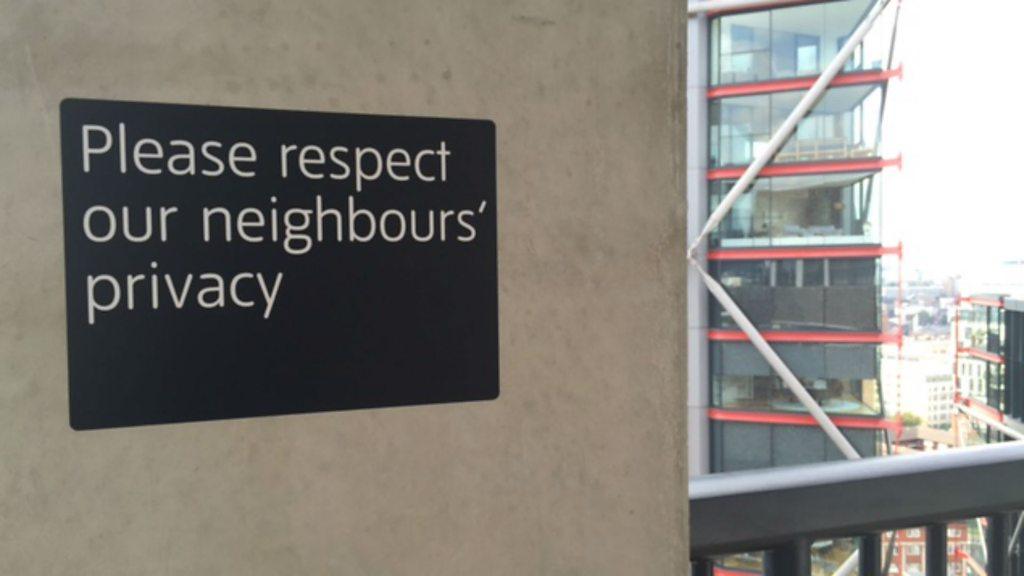Tate Modern: Flat owners win viewing platform privacy case
- Published
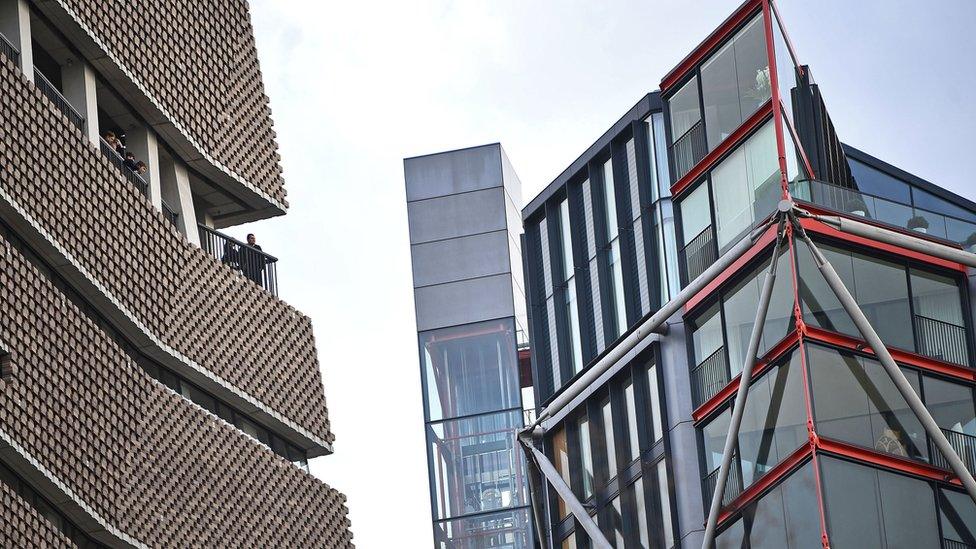
The Supreme Court ruling is the latest development in the long-running dispute
The owners of four luxury flats overlooked by the Tate Modern in London have won a privacy bid over the use of the gallery's viewing platform.
The Neo Bankside residents took legal action over the "hundreds of thousands of visitors" looking into their homes.
In February 2020, the Court of Appeal dismissed their claim, saying they should "lower their solar blinds".
But the Supreme Court overturned the decision on Wednesday following a hearing in December 2021.
The five residents had applied for an injunction requiring the gallery to prevent members of the public observing their flats by "cordoning off" parts of the platform or "erecting screening".
The Supreme Court heard the residents' flats are approximately 112ft (34m) away from the Tate Modern.
Other flats in the four-block development are on sale for between £750,000 and £2.5m, according to current listings on Rightmove.
The residents, who had bought their flats in 2013 and 2014, lost their case at the High Court and Court of Appeal so took it to the UK's highest court.
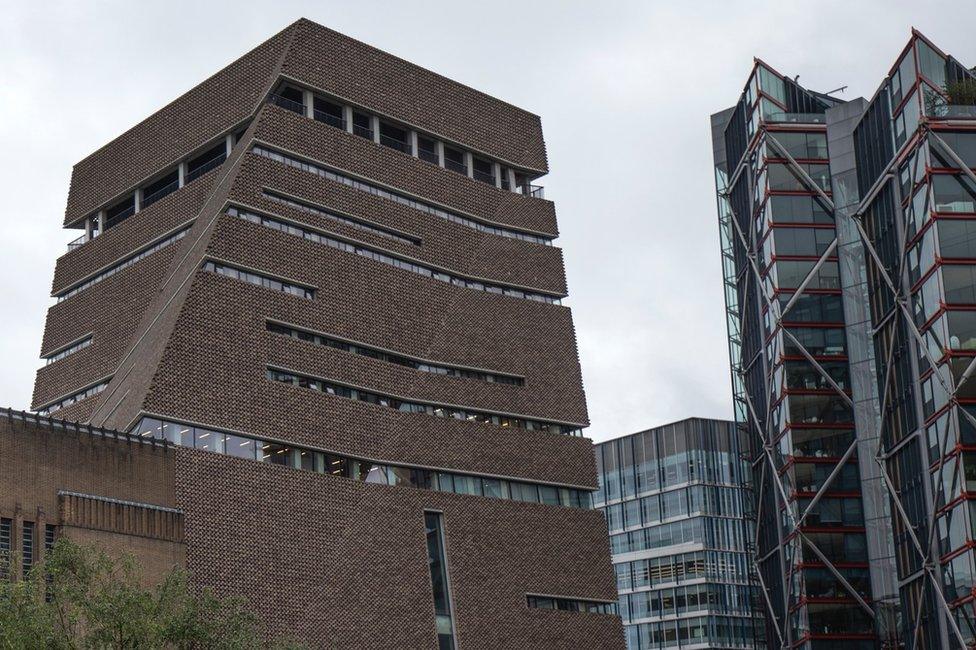
The flat owners said they had no privacy when their blinds were open
Passing his judgement, Lord Leggatt said the viewing gallery, which is currently closed, left the residents feeling like they were "being on display in a zoo".
He added it was "not difficult to imagine how oppressive living in such circumstances would feel for any ordinary person".
The court drew a distinction between the impact of the Tate's viewing deck and an hypothetical block of flats that could have been built on the same site, which would be classed as "normal" usage.
"In such circumstances the fact that the occupants of these new flats could see straight into the claimants' living accommodation might have caused the claimants annoyance," said Lord Leggatt.
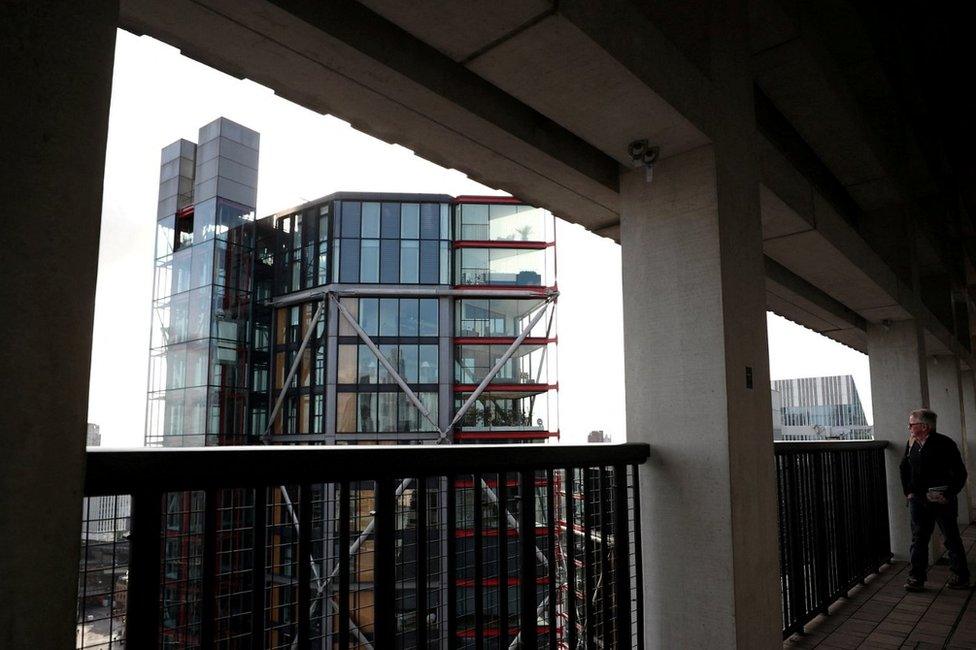
The flats on the 18th and 19th floors of the building are at around the same height as the viewing gallery
But if the occupants of the new flats were "showing as much consideration for their neighbours as they could reasonably expect" they could not have complained.
"It would be required by the rule of give and take, live and let live," he added.
Nevertheless, the court ruled that creating the viewing platform was not a "normal" use of the museum's land and therefore there was a right to complain.
"Inviting members of the public to look out from a viewing gallery is manifestly a very particular and exceptional use of land," the judge said.


This momentous win for the owners of the multimillion-pound glass-box flats has already triggered a huge debate among London's construction lawyers as to where it will lead.
While the facts of the dispute relate to modern architecture, the law partly dates back to the 14th Century.
The Supreme Court notes that back in 1341, John Le Leche, a London fishmonger, unlawfully erected a "watch-tower" from which he could peep on his neighbours.
That ancient case shows that peering into someone's home can cause a legally intolerable nuisance, even in a densely populated city.
The key question, as Lord Leggatt explains in this case, is what is ordinary and normal use of the Tate's land.
And the majority of the court said the Tate viewing deck had created a "very particular and exceptional situation" that crossed the line because of its impact.
So rather like the 14th Century fishmonger's long-forgotten watch tower, the constant viewing of the flats was not a necessary or ordinary use of the Tate's land - and therefore must, somehow, stop.

The platform opened in 2016 and provides a panorama of London as well as a direct view into the glass-fronted flats.
The flat owners said it created a "relentless" invasion of their privacy and applied for an injunction the following year.
The court case has been running ever since with the Supreme Court ruling by a margin of three-to-two in the flat owners' favour.
The case will now be returned to the High Court to determine a solution for the flat owners.
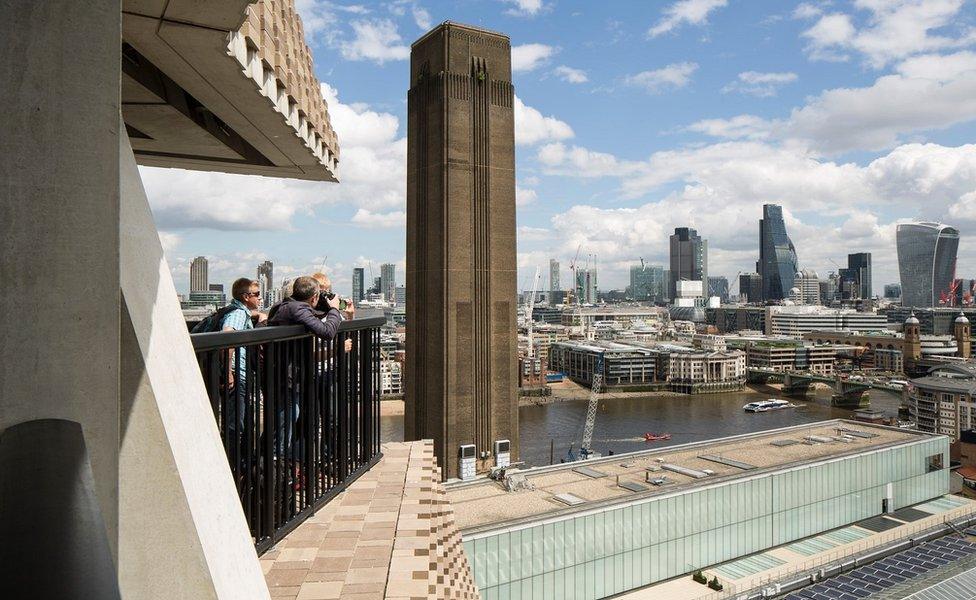
The viewing platform opened in 2016 and provides 360 degree views of London
Natasha Rees, a partner at Forsters LLP who represented the residents, said her clients were "pleased and relieved" with the ruling.
She added they would work with the Tate to "find a practical solution which protects all of their interests".
A Tate spokesperson said as the case has been referred back to the High Court it "cannot comment further".

Follow BBC London on Facebook, external, Twitter , externaland Instagram, external. Send your story ideas to hellobbclondon@bbc.co.uk, external
- Published12 February 2020
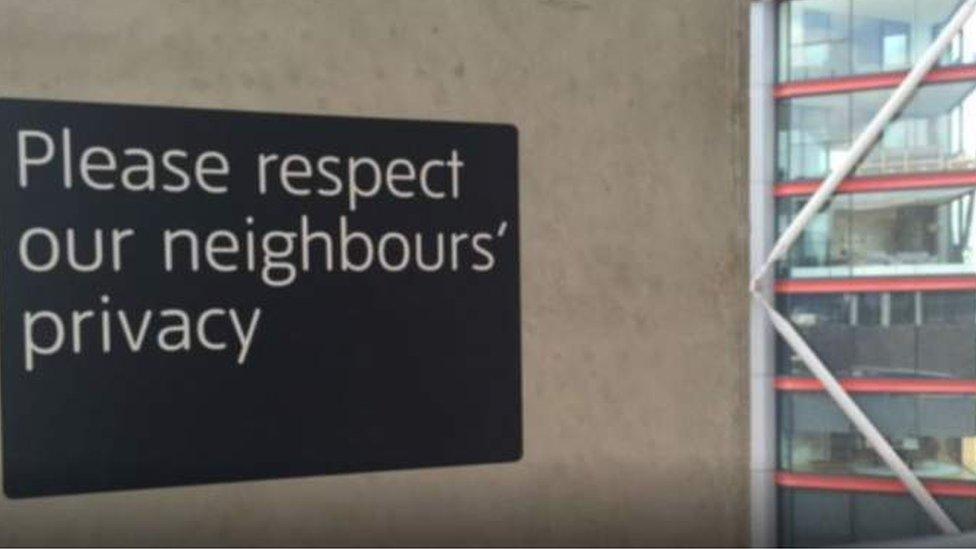
- Published8 September 2016
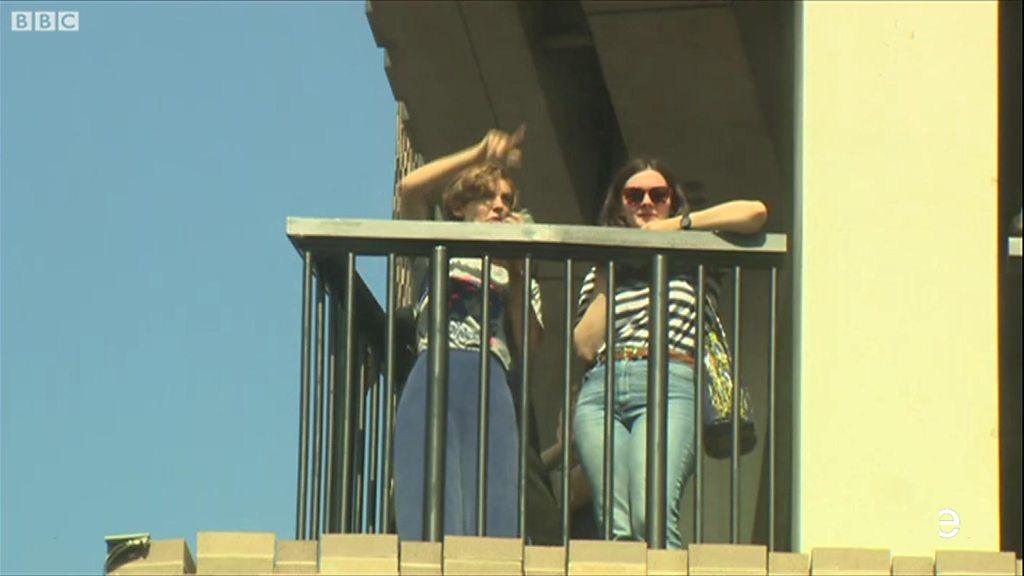
- Published22 September 2016
